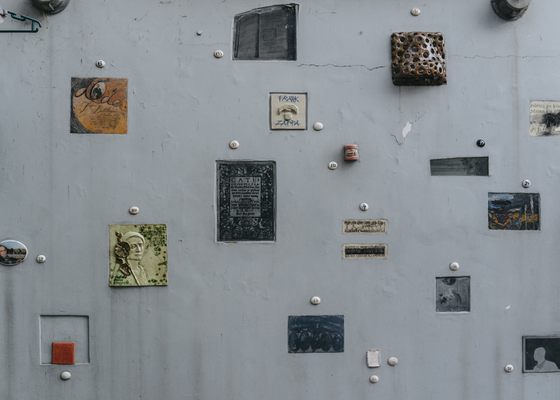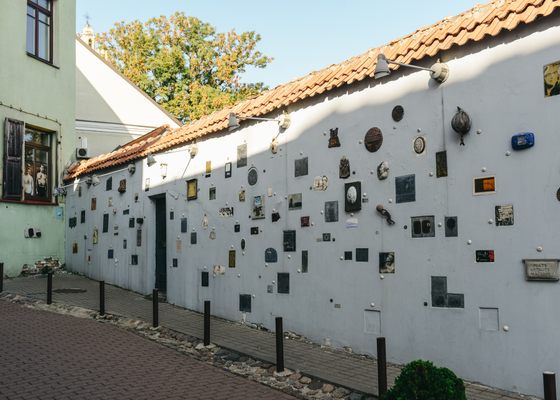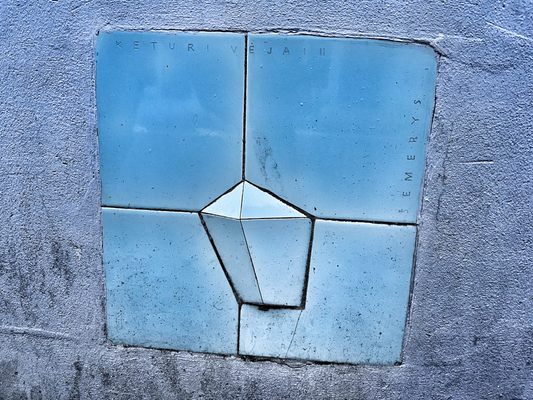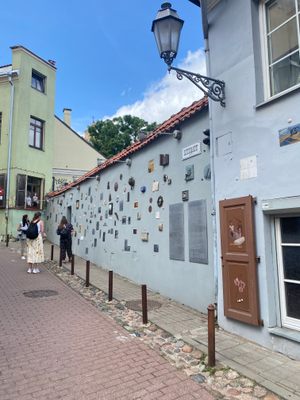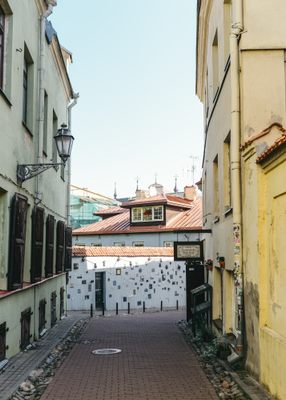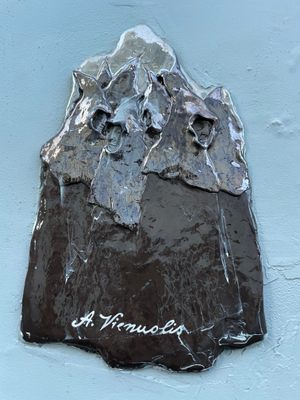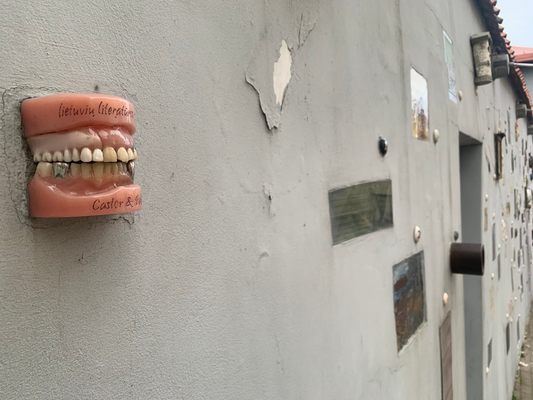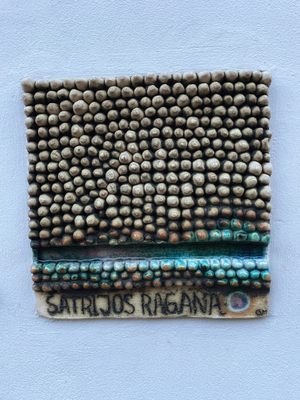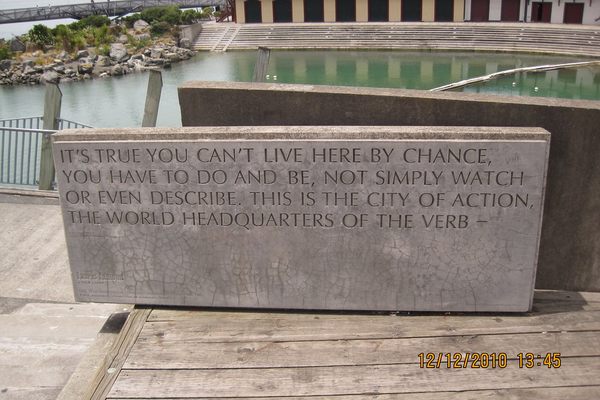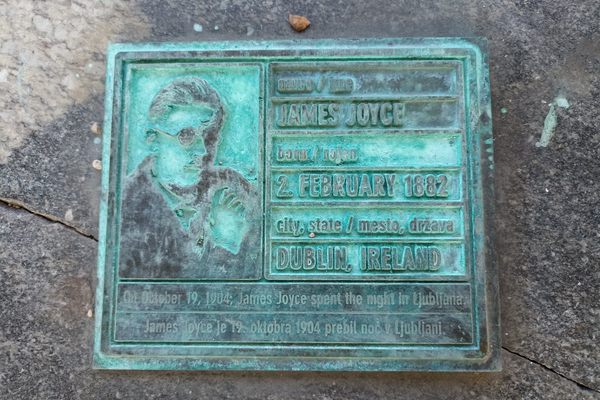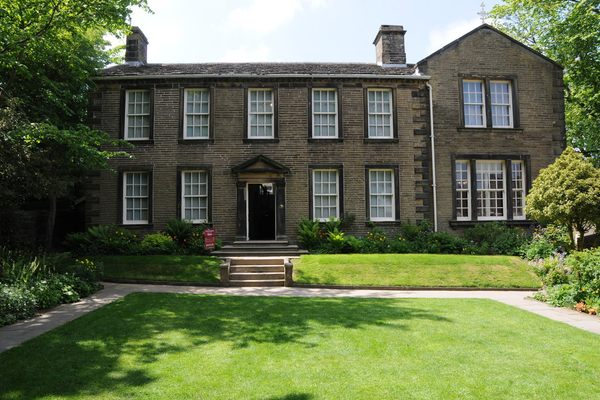About
In 2009, a group of artists decided that Literatų gatvė (Literature Street) in the Old Town of the Lithuanian capital Vilnius should be made worthy of its name. As part of a project connected to Vilnius's stint as European Capital of Culture, they began putting up decorated plaques, each dedicated to an individual writer. The idea proved popular, and there are now over 200 plaques dotting a single wall on the winding little street, of a wide variety of shapes, sizes, colors and materials. Some are portraits of the authors, others decorated quotes from their works, and still others are entirely abstract works—one is simply a set of teeth, which presumably makes sense to aficionados of the writer in question.
All of the writers featured have some connection with Vilnius, which means that most of those featured are Lithuanian and are often unfamiliar to visitors from elsewhere. But some foreign names do sneak in: there are plaques to the 20th-century Russian poet Joseph Brodsky for his frequent visits to the country (at the invitation of his friend and fellow poet Tomas Venclova, another of those featured on the wall); the classic French author Stendhal, who served in Napoleon’s invading army and spent time in Lithuania en route to Moscow; and even the contemporary American writer Jonathan Franzen, as a character in his 2001 novel The Corrections takes an extended visit to immediately post-Soviet Vilnius (although his rather unflattering depiction of the place caused some offense locally).
But the very name of the street is a reminder that in a borderland city like Vilnius, where multiple cultures have long overlapped, identity is a complicated business. Literatų Gatvė is so-called because the writer Adam Mickiewicz resided here in the early 19th century. Mickiewicz is best-known internationally as the national poet of Poland, but he is also claimed by Lithuania (where he is called Adomas Mickevičius) and Belarus. While he wrote in Polish, he spent very little time in the territory of modern-day Poland: he was born in what is now Belarus, and his most celebrated poem begins “Lithuania, my fatherland! You are like good health” (although this doesn’t necessarily mean the present-day state—Lithuania has often historically been used to indicate a much bigger area). But whatever his national identity, being a famous resident of Vilnius, Mickiewicz (or Mickevičius) is guaranteed his own plaque on the wall.
Related Tags
Know Before You Go
Literatų gatvė is in Vilnius’s picturesque Old Town and is easily accessed by foot (and only by foot, since the street pedestrianized). The wall decorated by plaques is very slightly along from where Literatų gatvė meets Rusų gatvė.
Community Contributors
Added By
Published
September 30, 2019
